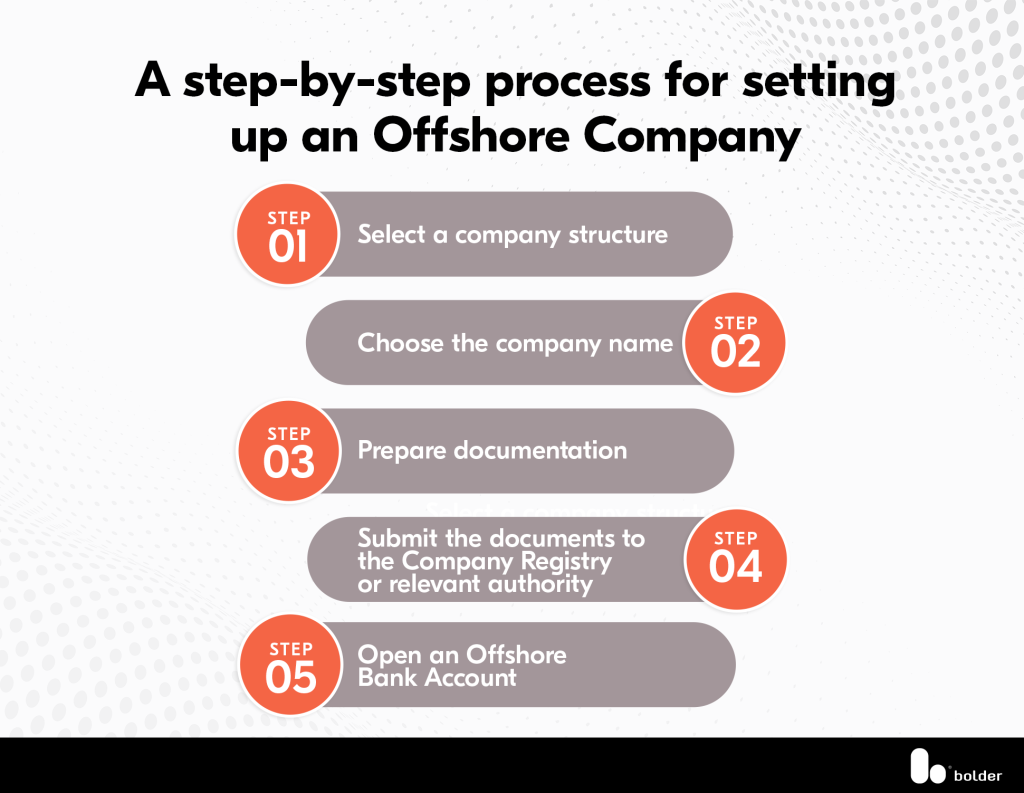How Offshore Company Formations Provide Corporate Shielding and Agility
Discovering the Providers Offered in Offshore Business Formations: What You Need to Know
Offshore firm formations supply a series of solutions designed to promote service success while guaranteeing compliance with lawful requirements. These solutions can include company registration, legal suggestions, and plans for privacy with candidate supervisors. Additionally, considerations around tax optimization and asset defense are essential. Comprehending these components can significantly affect one's decision-making procedure. The complexities of picking the ideal jurisdiction and steering via laws increase additionally questions. What should one consider following?
Understanding Offshore Firm Structures
What defines an offshore business structure? An overseas firm is usually signed up in a foreign jurisdiction, usually characterized by favorable regulative atmospheres and confidentiality. These structures are created to give lawful separation between the firm's assets and its owners, allowing a variety of operational and monetary benefits. Offshore firms can be developed as numerous types, consisting of limited responsibility business (LLCs), corporations, or depends on, depending upon the governing framework of the chosen territory.
Key features of these structures include improved personal privacy, possession protection, and simplicity of global service purchases. In addition, they often require very little regional presence and can facilitate the monitoring of financial investments across boundaries. The option of a specific offshore territory can significantly influence the operational capabilities and conformity requirements of the company. Generally, comprehending the ins and outs of offshore company structures is vital for capitalists and business owners looking for to optimize their company strategies.
Tax Advantages of Offshore Business
Offshore companies offer substantial tax advantages that can improve earnings and monetary efficiency for local business owner. Among the primary benefits is the capacity for decreased corporate tax obligation rates, which can be especially less than those in the owner's home country. Many overseas jurisdictions give tax incentives, such as tax obligation holidays or exemptions on specific sorts of revenue. Additionally, overseas companies might take advantage of desirable tax obligation treaties, permitting the reduction or elimination of withholding tax obligations on returns, royalties, and passion. This can bring about boosted cash flow and better reinvestment opportunities. Some offshore entities can operate under a territorial tax obligation system, which only tax obligations income generated within that jurisdiction. This structure can be especially helpful for companies taken part in worldwide trade or on the internet services, enabling them to optimize their tax commitments while preserving conformity with international policies. On the whole, these tax obligation benefits can greatly add to lasting monetary success.
Privacy and Confidentiality Features
Just how can local business owner protect their delicate information while gaining from worldwide opportunities? Offshore firm formations offer robust privacy and confidentiality features that appeal to entrepreneurs looking for discretion (Offshore Company Formations). Numerous territories offer candidate solutions, allowing individuals to select 3rd celebrations as directors or shareholders, consequently concealing their identifications from public documents
Furthermore, stringent information defense legislations in many offshore territories ensure that delicate info continues to be confidential. Offshore firms typically gain from improved financial privacy, with policies that protect client identifications and economic transactions.
The usage of exclusive addresses for registered workplaces lessens exposure to public scrutiny.
These personal privacy measures allow entrepreneur to operate with higher confidence, knowing their delicate data is safe and secure. By leveraging these functions, business owners can concentrate on tactical growth opportunities without the consistent worry of information exposure.
Possession Defense Approaches
While steering through the intricacies of global service, entrepreneurs must focus on asset protection to guard their wide range from potential risks. Offshore company formations supply durable techniques for mitigating exposure to lawful insurance claims, lender actions, and political instability. One reliable method entails developing a minimal responsibility company (LLC), which divides individual properties from organization responsibilities, thereby supplying a guard versus legal actions.
Additionally, entrepreneurs can utilize depend hold properties, ensuring they remain safeguarded from lenders and lawful disputes. Jurisdictions with solid property protection regulations, such as Nevis or the Chef Islands, are often preferred for their positive policies. Executing appropriate insurance plan and expanding financial investments even more boosts safety and security, lessening vulnerability to market variations. Overall, using these methods within an overseas framework not just promotes riches preservation yet also fosters long-lasting financial security, permitting entrepreneurs to concentrate on development and development without unnecessary worry over possession exposure.

Opening Up Offshore Bank Accounts
Opening overseas savings account involves comprehending the different account kinds available, which can deal with different economic demands. Furthermore, the paperwork process is vital, as it usually needs details types of recognition and proof of residence. This overview will certainly clarify the choices and requirements for individuals and services looking for to establish overseas banking connections.
Account Types Provided
Offshore financial institution accounts been available in numerous kinds, each designed to cater to various economic demands and objectives. Personal accounts are customized for people looking for privacy and property security, while business accounts help with organization purchases and monitoring of firm funds. Multi-currency accounts are prominent amongst international investors, enabling purchases throughout various currencies without extreme conversion charges. In addition, cost savings accounts use rate of interest on deposits, appealing to those aiming to expand their possessions safely. Some financial institutions also give investment accounts, offering customers accessibility to different investment possibilities. Each account kind might feature distinct advantages and functions, enabling customers to select the one that aligns best with their financial methods and goals. Comprehending these options is basic for effective offshore banking.
Required Documentation Refine
To successfully open an overseas bank account, potential customers should prepare a set of certain documents that satisfy regulative requirements. This normally includes a legitimate ticket or government-issued recognition to confirm identification. Customers are likewise needed to supply evidence of residence, such as an energy bill or financial institution declaration, dated within the last view publisher site 3 months. Additionally, a detailed description of the resource of funds is necessary to assure compliance with anti-money laundering regulations. Some banks might request a service strategy or reference letters, especially for corporate accounts. Each territory might have one-of-a-kind demands; as a result, talking to a professional in offshore solutions is advisable to establish all documentation is full and precise, promoting a smoother account opening process.
Conformity and Regulatory Factors To Consider
Maneuvering the intricacies of compliance and governing factors to consider is essential for any type of entity seeking offshore business developments. Entities have to adhere to different international and regional laws that govern financial tasks, taxes, and company governance. Key regulations often you can try this out include anti-money laundering (AML) legislations, understand your consumer (KYC) protocols, and reporting needs to ensure transparency.
Business need to continue to be alert concerning changes in regulation that might impact their functional status. Failing to abide can result in severe penalties, including fines or the dissolution of the company. Involving with lawful and monetary specialists that concentrate on overseas guidelines can provide crucial advice in guiding through these ins and outs.
In addition, understanding the effects of tax obligation treaties and worldwide contracts is fundamental for maintaining compliance. Firms should focus on establishing durable conformity frameworks to alleviate threats and guarantee long-term sustainability in their offshore ventures.
Selecting the Right Offshore Jurisdiction
Exactly how does one determine the most appropriate offshore jurisdiction for firm development? The selection of jurisdiction is important and involves numerous factors. Initially, one must evaluate the legal structure and policies governing companies in possible jurisdictions. Favorable tax regimes, such as reduced or no business tax obligations, are often a main factor to consider. Furthermore, the political stability and online reputation of the territory play considerable duties in guaranteeing the defense of assets and compliance with global standards.
Moreover, the availability of banking solutions and the ease of working ought to not be forgotten. A jurisdiction offering robust discretion provisions can likewise be beneficial for those looking for privacy. Finally, assessing the expenses related to business formation, upkeep, and prospective lawful charges is vital. By evaluating these aspects, one can make an educated choice, ensuring that the chosen offshore territory aligns with their business goals and operational needs.

Frequently Asked Questions
For how long Does the Offshore Firm Development Process Generally Take?

The overseas firm development process commonly takes anywhere from a few days to several weeks. Offshore Company Formations. Factors affecting this timeline include jurisdiction, paperwork completeness, and certain provider included in the development process
What Are the First Prices Associated With Establishing up an Offshore Company?
The first costs for establishing up an overseas business can differ commonly, usually incorporating registration costs, legal costs, and surcharges for solutions like checking account configuration and conformity, typically totaling several hundred to several thousand imp source dollars.
Can Individuals Kind Offshore Companies Without Expert Help?
Individuals can practically create offshore companies independently; however, they commonly encounter complicated legal and governing demands. Offshore Company Formations. Specialist support is advised to navigate these difficulties properly and ensure compliance with appropriate laws and policies
What Files Are Required for Offshore Firm Enrollment?
The papers needed for overseas company enrollment generally include identification evidence, an in-depth organization plan, proof of address, and, in some territories, an affirmation of helpful ownership and resolutions from supervisors.
Exist Ongoing Upkeep Charges for Offshore Firms?
Ongoing upkeep fees for offshore business are generally called for to guarantee conformity with regional policies. These fees may consist of annual renewal fees, signed up agent services, and accounting, differing by jurisdiction and details business framework.
